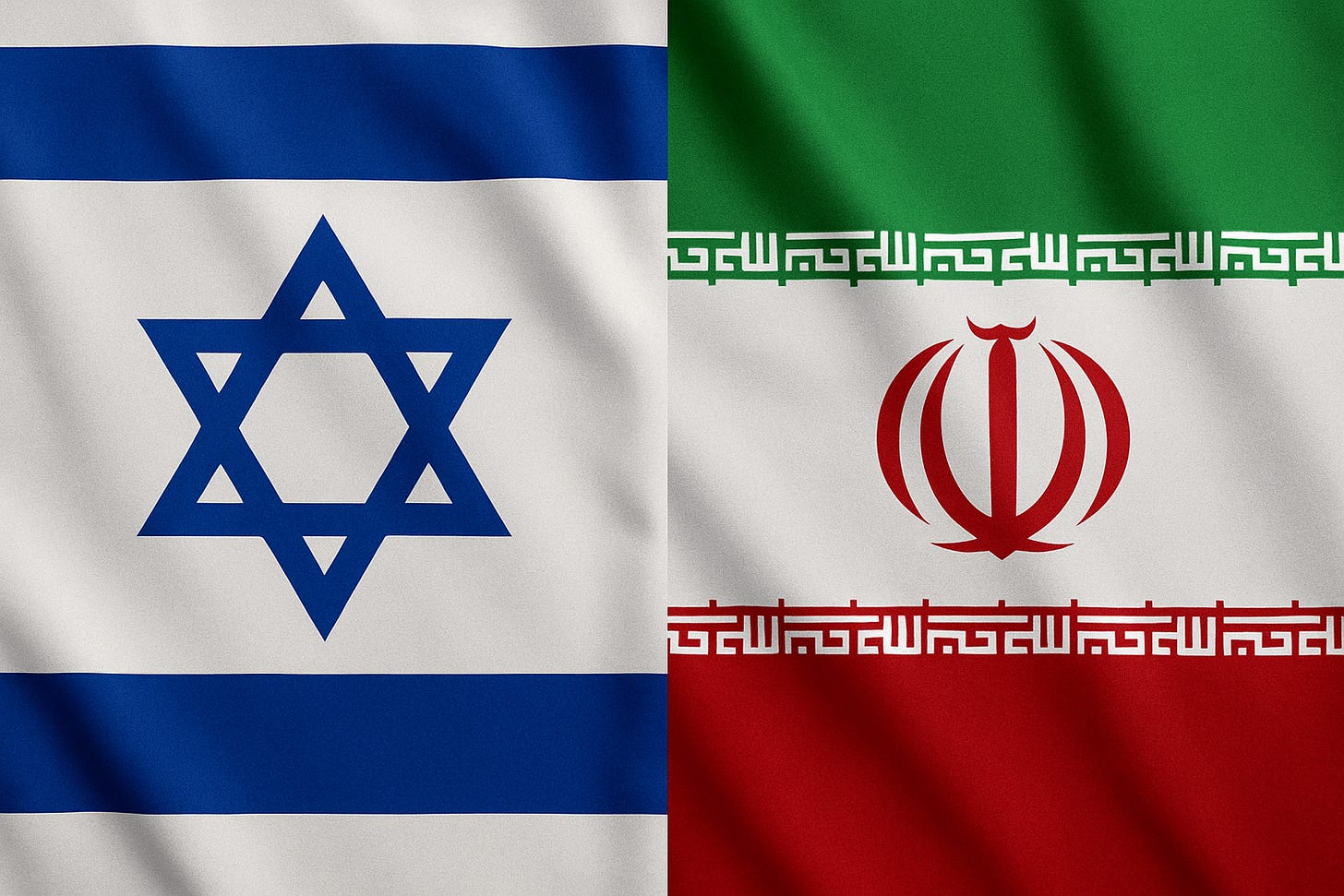Why Could Israel Be Interested in Regime Disruption Rather Than Regime Change in Iran?
On the fourth day of the military escalation between Israel and Iran, it has become increasingly clear that Israel's Rising Lion operation extends far beyond Iran’s nuclear program. Netanyahu’s call for the Iranian people to oppose the Islamic regime suggests that Israel's objectives may reach well beyond concerns over uranium enrichment. The goal appears to be regime disruption: destabilising the political system, slowing down specific capacities and strategic ambitions, while stopping short of outright regime change. This is not about toppling the Islamic Republic, but rather about permanently degrading its capabilities, particularly its nuclear development, regional influence, and potentially even its governance capacity. Several arguments can be advanced as to why Israel’s objective may be regime disruption rather than full-scale regime change.
The nature of Iran’s regime makes regime change extremely difficult. Unlike many Middle Eastern regimes that have fallen in the past, Iran is not a personalist dictatorship but an ideological theocracy with deep institutional and social roots. Its ideology — rooted in Shiite Islam — is widely internalised and practised in everyday life. Even if Israel were to eliminate key figures in the political, military, or religious leadership, there remains a broad and resilient elite structure capable of regenerating itself. The size of the Iranian population, the depth of its ideological networks, and the geographical spread of its elite ensure that replacements for fallen leaders — whether political commanders, military officers, or religious authorities — would quickly emerge. However, by delivering heavy blows to the ruling elite, Israel may be able to disrupt internal elite cohesion and degrade the regime’s governance capacity, both civilian and military, without necessarily toppling the entire system.
The resilience of Shiite martyrdom culture limits the prospects of an externally triggered revolution. At the core of Shiite ideology lies a strong cultural embrace of martyrdom, sacrifice, and resistance in the face of oppression. Unlike communist systems, where ideology was often imposed from above, the Islamic Republic’s ideological foundation is deeply embedded within societal practices and collective identity. In this context, external military pressure or sanctions — especially if perceived as being driven by Israel — are unlikely to trigger mass rebellion. The greater the oppression and suffering, the more united and determined the people become. Instead of weakening the regime's legitimacy, external aggression may strengthen national unity and the regime's hold on power, on which the academic literature also has a strong consensus. Strategies that worked in smaller, less ideologically cohesive contexts, such as Gaza or Lebanon, are unlikely to be effective against Iran.
The scale of Iran makes comprehensive destruction infeasible. Iran’s sheer size, population, and territorial depth make it fundamentally different from smaller arenas of Israeli intervention such as Gaza or Lebanon. Large-scale destruction sufficient to turn the population against the regime would be practically unachievable without full-scale U.S. involvement and a massive international military campaign. Moreover, such an operation would carry immense political costs for Washington and its allies, particularly in a global context increasingly skeptical of Western-led regime change interventions. An attempt to overthrow Iran’s regime by force would likely provoke strong opposition across the Global South, deepen anti-Western sentiment, and potentially strengthen Russia and China’s global positions.
Iran’s geopolitical importance limits the appetite for regime change among major powers. As a BRICS member and a major energy supplier to China, Iran plays a significant role in the broader geopolitical balance. A full regime change in Iran would seriously damage both Russia and China’s global positioning and reputation. While neither Moscow nor Beijing may be willing to intervene directly, both have strong interests in preventing any U.S.- or Israeli-led effort to destabilise Tehran. Iran, therefore, represents a second front in the broader confrontation between the West and the emerging multipolar world. The United States might try to leverage the Iranian issue as a bargaining chip in negotiations with China or Russia (for example, linking concessions on Iran to Chinese influence over Russia's behaviour in Ukraine), but this makes regime change even more geopolitically complicated.
Regime change would not guarantee a pro-Western outcome. Even if a regime change were successfully implemented and democratic institutions installed, Iran’s social and ideological landscape contains sufficient support for anti-Western sentiments to rise to power through legitimate democratic processes. Such leaders or groups could enjoy greater international legitimacy than the current Islamic Republic while still pursuing policies hostile to Israel or the West. Conversely, establishing a strong, stable authoritarian regime to prevent such outcomes would also be highly unlikely. Iran’s large population, ethnic and regional diversity, and demonstrated social dynamism make the consolidation of a new hard dictatorship extremely difficult. In the past social unrests, the resilience of the current regime was not simply the result of protest weakness or state repression, but also that of a broader societal unwillingness to embrace full-scale regime change. For Israel, therefore, the most advantageous outcome is not regime replacement, but rather the weakening and disruption of the current regime, keeping it strategically vulnerable without risking the emergence of a potentially even more dangerous successor.
A controlled level of threat serves Israeli strategic interests. A permanently weakened but surviving Islamic Republic provides Israel with a manageable adversary that serves several strategic purposes. The Iranian threat helps sustain Israeli-Arab normalisation processes, justify continued Western political and military support, and maintain domestic political cohesion within Israel itself. Periodic exchanges of hostilities — as long as they remain limited — allow Israel to exercise its military superiority, strengthen deterrence, and preserve the operational freedom to strike Iranian targets as needed.
Finally, a fully collapsed Iranian state could create dangerous unpredictability and new threats; a disrupted, degraded regime provides a more stable framework for Israel’s long-term strategic posture.





